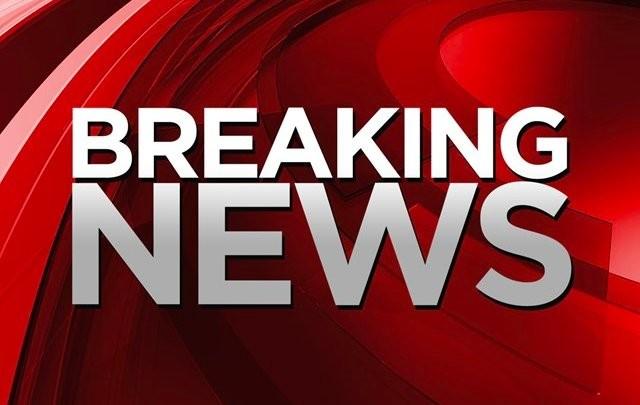NAFDAC to Enforce Ban on Small-Packaged Alcohol from January 2026.
The National Agency for Food and Drug Administration and Control (NAFDAC) has announced a firm December 2025 deadline for the prohibition of alcoholic beverages sold in sachets and bottles under 200 millilitres, with full enforcement set to begin in January 2026.
Prof. Mojisola Adeyeye, the agency’s Director-General, emphasized that there will be no further extensions of the ban, urging manufacturers, distributors, and retailers to comply fully.
Supported by the Senate and the Federal Ministry of Health and Social Welfare, the ban aims to protect children, adolescents, and young adults from the harmful effects of alcohol abuse.
Adeyeye highlighted that small, cheap, and easily concealable alcoholic drinks contribute to addiction and have fueled social vices, including road accidents, domestic violence, school dropouts, and other forms of insecurity. “This ban is protective, not punitive. The health of our nation, especially our children, is more important than short-term economic gain,” she stated.
Prof. Adeyeye underscored that the ban aligns with Nigeria’s commitment to the World Health Organization’s Global Strategy to Reduce the Harmful Use of Alcohol. She also urged Nigerians to view the measure as a collective responsibility, emphasizing that alcohol misuse among children poses a long-term threat to the nation’s security and workforce.
“The decision is grounded in science, public health, and national interest. Protecting our children and ensuring the stability of our future workforce is not just NAFDAC’s duty it is a responsibility for all Nigerians,” she concluded.
The National Agency for Food and Drug Administration and Control (NAFDAC) has announced a firm December 2025 deadline for the prohibition of alcoholic beverages sold in sachets and bottles under 200 millilitres, with full enforcement set to begin in January 2026.
Prof. Mojisola Adeyeye, the agency’s Director-General, emphasized that there will be no further extensions of the ban, urging manufacturers, distributors, and retailers to comply fully.
Supported by the Senate and the Federal Ministry of Health and Social Welfare, the ban aims to protect children, adolescents, and young adults from the harmful effects of alcohol abuse.
Adeyeye highlighted that small, cheap, and easily concealable alcoholic drinks contribute to addiction and have fueled social vices, including road accidents, domestic violence, school dropouts, and other forms of insecurity. “This ban is protective, not punitive. The health of our nation, especially our children, is more important than short-term economic gain,” she stated.
Prof. Adeyeye underscored that the ban aligns with Nigeria’s commitment to the World Health Organization’s Global Strategy to Reduce the Harmful Use of Alcohol. She also urged Nigerians to view the measure as a collective responsibility, emphasizing that alcohol misuse among children poses a long-term threat to the nation’s security and workforce.
“The decision is grounded in science, public health, and national interest. Protecting our children and ensuring the stability of our future workforce is not just NAFDAC’s duty it is a responsibility for all Nigerians,” she concluded.
NAFDAC to Enforce Ban on Small-Packaged Alcohol from January 2026.
The National Agency for Food and Drug Administration and Control (NAFDAC) has announced a firm December 2025 deadline for the prohibition of alcoholic beverages sold in sachets and bottles under 200 millilitres, with full enforcement set to begin in January 2026.
Prof. Mojisola Adeyeye, the agency’s Director-General, emphasized that there will be no further extensions of the ban, urging manufacturers, distributors, and retailers to comply fully.
Supported by the Senate and the Federal Ministry of Health and Social Welfare, the ban aims to protect children, adolescents, and young adults from the harmful effects of alcohol abuse.
Adeyeye highlighted that small, cheap, and easily concealable alcoholic drinks contribute to addiction and have fueled social vices, including road accidents, domestic violence, school dropouts, and other forms of insecurity. “This ban is protective, not punitive. The health of our nation, especially our children, is more important than short-term economic gain,” she stated.
Prof. Adeyeye underscored that the ban aligns with Nigeria’s commitment to the World Health Organization’s Global Strategy to Reduce the Harmful Use of Alcohol. She also urged Nigerians to view the measure as a collective responsibility, emphasizing that alcohol misuse among children poses a long-term threat to the nation’s security and workforce.
“The decision is grounded in science, public health, and national interest. Protecting our children and ensuring the stability of our future workforce is not just NAFDAC’s duty it is a responsibility for all Nigerians,” she concluded.
0 Comments
·0 Shares
·491 Views




